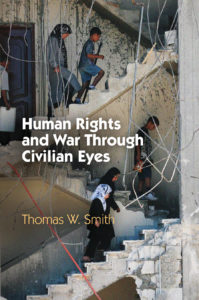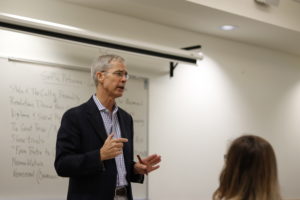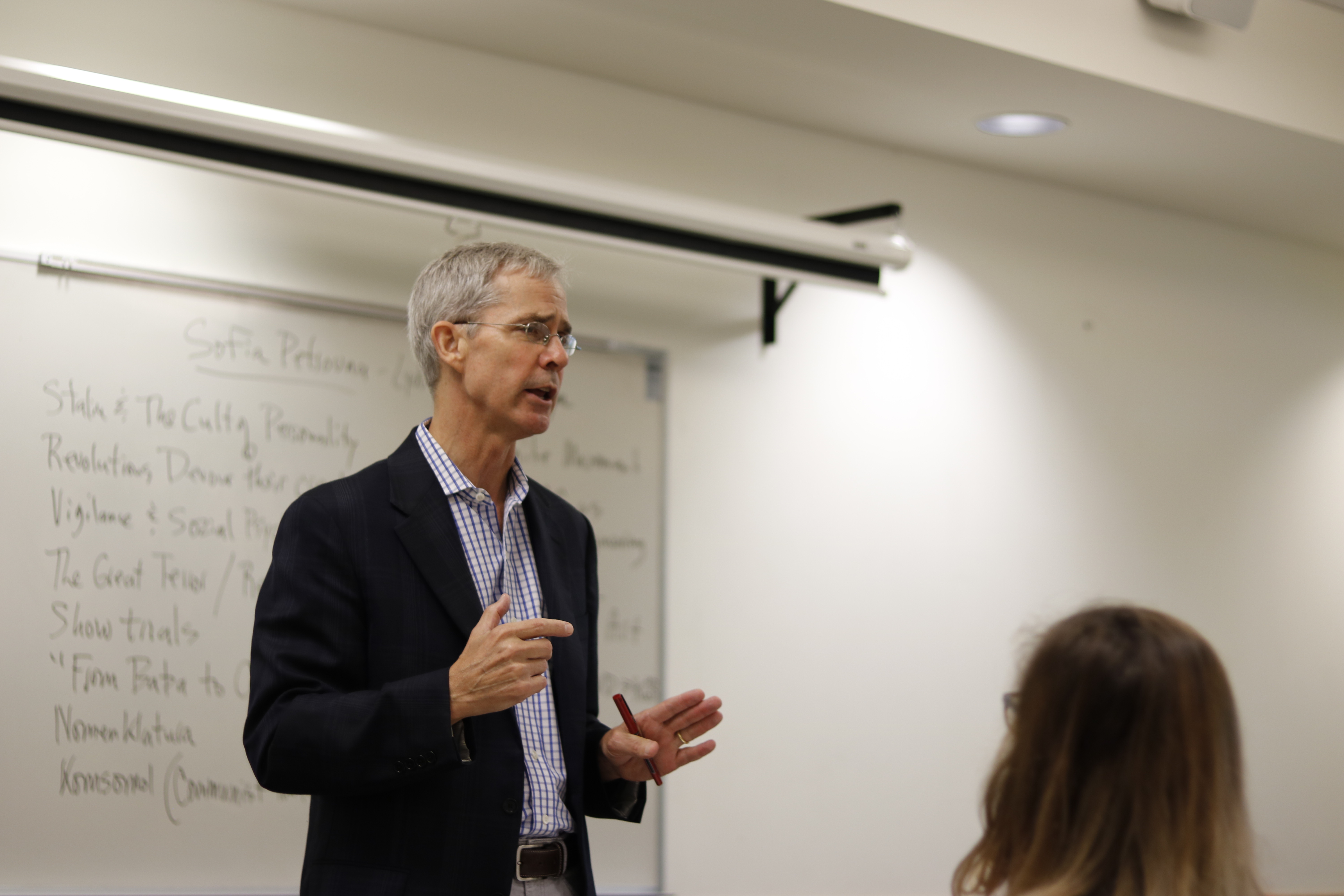For the past seven years Dr. Thomas Smith, a professor at USF St. Petersburg, has been listening to the often unheard stories of people affected by war.
He’s received data from first-hand accounts, surveys and interviews about the tragic circumstances of those in Syria, Iraq and the Gaza Strip.

“The body count is just the beginning,” Smith said.
These details are recorded in Smith’s new book “Human Rights and War Through Civilian Eyes” to be released on Nov. 1. Smith said he wanted to help establish a new perspective.
“I wanted to reverse the gunsights, if you will,” Smith said. “To have Americans and others see the wars from the perspective of those people on the ground.”
Smith is an associate professor of political science and the director of the university’s Honors Program. He holds a bachelor’s in anthropology from the College of William and Mary and holds a doctorate in foreign affairs from the University of Virginia. Smith has taught at USFSP since 2000.
Smith said, most academic papers and books concentrate on people within the conflict like soldiers and guerrilla fighters. He wanted to deliver a nonpartisan look at controversial and ongoing war zones.
He hopes his book will change the way people consider the lives of people from these war-torn places.
“There is a kind of complacent view that civilians always die in warfare and they always will, so there is nothing we can do about it. That’s the assumption I want to challenge.”
Smith did not travel to Gaza or Iraq for the book. To create a representation of the people affected in these war-torn regions, Smith brought together a number of personal stories, collected by various humanitarian organizations and people traveling to the region. These were accounts of tragedy and loss. Many, Smith said, were emotionally difficult.
“There was a doctor living in Gaza,” Smith said. “He was a man of science and he was talking about, during the shelling, how to talk to his kids. I mean little children. He said, ‘I tell them about paradise, that this is what awaits you.’ Even though he doesn’t believe in it.”
There are currently 263,500 displaced people in Occupied Palestine, according to a July 2015 study by the International Displacement Monitoring Centre (IDMC).
These people have lost their homes, their livelihoods and their loved ones due to the ongoing conflict.
Smith hopes that his book can help inform more Americans about the current status of Syria.
“By raising up this issue and making it part of the conversation, I hope to improve the lot of civilians around the globe. That’s a big order, but ultimately that is what I really hope to do.”

He dedicated one portion of the book to discussing the Syrian refugee crisis, which Smith said isn’t well understood by many Americans. Over 6.6 million civilians have been displaced within the country, and many have been seeking relocation in various countries.
“More than half of the population has been displaced by the war,” Smith said. “Millions have been displaced from their homes, their lives. There is a dramatic impact on everyday life. It is really hard to even fathom just what that experience is like.”
The U. S. government has set the goal of resettling 10,000 refugees this year, though there has been heavy skepticism lobbied against the initiative.
“The truth is much of the debate about refugees coming to the U.S. is not realistic. It’s based on a caricature of who these people are,” Smith said.
“By humanizing them I hope to get people to see them, see their faces and get people to recognize our common humanity.”
Smith will present his research for the book at the Tampa Bay Times Festival of Reading held on campus Nov. 12.



